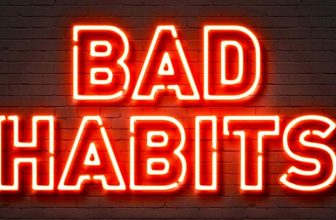
The human body has an order in which it breaks down different substances to provide energy to its cells. The first energy source is glucose, which we typically derive from foods.
If we do not eat enough, the body turns to fats that break down for energy through a process known as lipolysis. Understanding this is crucial for weight loss as it is in this process that it primarily happens.
Weight Gain and Loss
Weight gain is determined by how much energy you store for everything you consume, including foods and drinks. It is also determined by how quickly you utilize that energy. If you consume more calories, your body stores more energy in the form of fat, so it is available when needed.
When you eat less, your body burns through any available glucose and starts burning stored fats. The number of fat cells remains the same as the body breaks down fats and uses them as an energy source. However, they get smaller, leading to weight loss and a smaller body frame.
In addition to natural processes, we can help our bodies consume fewer calories and burn fat quickly using supplements. A supplement like PhenQ helps with fat burning, while PhenQ PM helps reduce caloric intake at night while supporting better sleep, which has been shown to help with weight loss. Whether you are considering PhenQ vs PhenQ PM, both are useful weight-loss options.
To understand the relationship between weight loss and gain, and how supplements can help, let’s look at specific ways the body burns fats and sheds weight.
Metabolism and Energy Expenditure
Metabolism encompasses all chemical processes that occur in the body to maintain life. Some of them include maintaining healthy organ function, digestive processes, maintaining body temperature, and physical activities.
Each of these processes requires some energy, and the sum of all energy required is your energy expenditure. A higher energy expenditure translates into more energy demand and, thus, a higher calorie and fat-burning rate. Exercise is the best example of how one can raise their energy expenditure, thereby increasing their metabolism and helping you lose weight.
Lipolysis
Lipolysis is one of the body’s metabolic processes, and it entails breaking down triacylglycerols (TAGs) into free fatty acids and glycerol through hydrolysis. This process also breaks down fats stored as adipose TAGs so that the body can utilize them for heat and energy.
Once the triglycerides are released from the adipocytes (fat cells), they are transported through the blood and into the cells that need them to create energy. This process involves hormones like noradrenaline and adrenaline, especially in extreme or flight-or-flight situations where the body needs a lot of energy.
The rate of lipolysis in an individual makes a significant difference in another crucial way. It prevents levels of free fatty acids from getting too high in the bloodstream. If these levels are high enough and remain so for a long time, you can develop arterial plaque and high cholesterol, both of which can lead to other issues that make burning fat and losing weight much harder.
It is important to note that genetics and hormonal balance can also affect the rate of lipolysis.
Beta Oxidation
Once the fat molecules are transported to the cells, they have to break down. This happens through a process known as beta-oxidation, which leads to the production of a molecule known as acetyl-CoA.
This molecule is then used in the Krebs cycle (citric acid cycle) to produce adenosine triphosphate (ATP) and other molecules. These are energy-rich molecules used in different metabolic processes and as energy sources.
Fat burning and weight loss involve a series of complicated steps. The main thing to understand is that the body needs to break down fat in the absence of glucose for energy, leading to a depletion of it in the body and subsequent weight loss.
Always consult with a nutritionist or healthcare professional before making significant changes.









